Small Business
Best Small Business Loans offers

Wells Fargo provides various small-business loans, including secured and unsecured business lines of credit, commercial real estate purchase and refinancing loans, commercial real estate equity loans, lines of credit, and health care practice financing.
Pros and cons
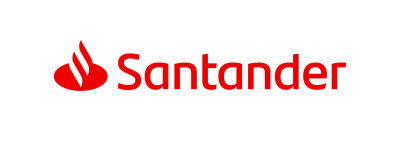
Santander offers various loans for personal needs, cars, home improvements, consolidating debts, and special occasions.
Pros and cons
.svg-list.jpg)
HSBC provides varied business loans, catering to expansion and cash flow needs, with flexible terms and specialized options for diverse business requirements.
Pros and cons
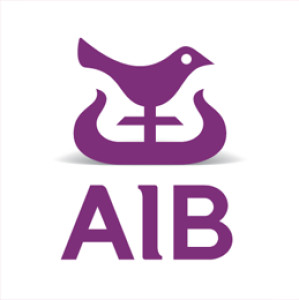
AIB, established 1966, offers diverse financial services. Its loans cater to varied personal, business needs, ensuring flexibility and stability.
Pros and cons
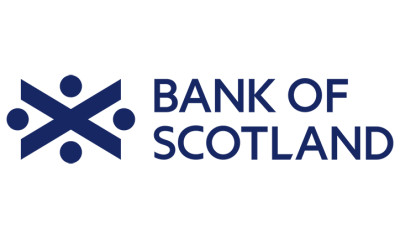
Bank of Scotland crafts diverse and flexible loans, offering competitive rates with a focus on inclusivity and top-notch service for everyone.
Pros and cons
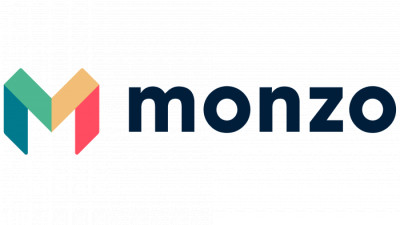
Monzo UK offers user-friendly digital banking with flexible personal and business loans up to £25,000, featuring fee-free extra payments and adjustable terms.
Pros and cons
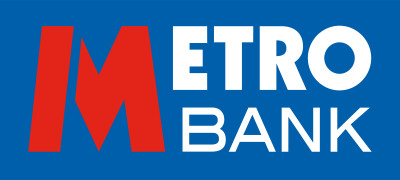
Metro Bank in the UK offers a range of financial services, including personal loans, business loans, and mortgages, with transparent terms and benefits.
Pros and cons
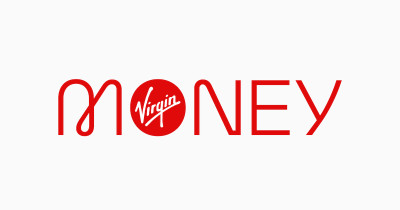
Virgin Money offers diverse financial solutions, including personal loans, business accounts, and mortgages, with competitive rates and convenient processes.
Pros and cons
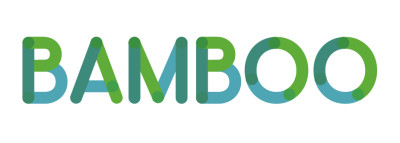
Bamboo, a UK lender, excels in customer service, offering diverse loans. They've won awards for fair lending and ethical practices, serving various customers responsibly under strict regulation.
Pros and cons
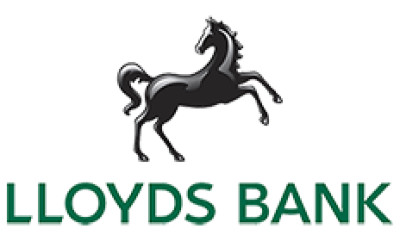
Lloyds Bank personal loans offer flexibility, attractive rates, same-day funds, repayment holidays, and early settlement options.
Pros and cons
Comprehensive Guide to Small Business Loans
Small business is often the labor of your life and hard to grow without significant capital investment. Small business loans are a practical way of infusing the capital you need for the equipment, expansion, or management of the cash flow of the business.
In this guide, we will explain to you the various types, advantages, and the application process of acquiring a small business loan and enable you to make informed decisions and choose the best among the options that will meet the needs of your business.
Understanding Small Business Loans
These loans are designed to suit the financial products for aid an entrepreneur acquires to finance his venture. The purposes can range from equipment purchase and expanding operations to managing cash flow. Business loans for small businesses are primarily offered by banks, credit unions, and online lenders.
Key Features of Small Business Loans:
- Eligibility Criteria: The factors may include business credit score, revenue, and time in operation.
- Interest Rates: They may vary with the loan type, lender, and the creditworthiness of the borrower.
- Repayment Terms: They can vary from a few months to many years.
- Documentation typically required: Business plans, financial statements, and tax returns.
For every business person who is looking to secure external financing to improve the potential of his or her business, the understanding of how the business loans work is critical.
How Small Business Loans Work
When you apply for a small business loan, the lender will evaluate your creditworthiness, business plan, and financial history. The process includes the submission of an application, documentation, and a credit check. When approved, the lender disburses the funds, which you must repay over a specified term with interest. Terms and small business loan interest rates will differ according to the type of loan and the lending office. Knowing how these loan products work will help you manage your finances effectively and make the right product choices for your business.
Types of Small Business Loans
There are various kinds of small business loans to suit different business needs:
- Term Loans: Offered as a lump sum payback over a set period.
- Lines of Credit: Give businesses flexible access to funds up to a set limit, with interest charged on the amount used. This helps the firms in the management of cash flow and efficiency in covering unexpected expenses.
- Government Backed Loans for Small Business: Receive preferable terms as the risk is lower for the lender; for example, those backed by the British Business Bank.
- Invoice Financing: Aids in managing cash flow by advancing money against invoices that remain unpaid.
- Small Business Loans for Bad Credit: Are loan products for businesses with poor credit and tend to have higher interest rates and stiffer terms in general.
Borrowers will make their loan selections based on the following:
- The loan amount that is needed.
- Purpose of the loan.
- Ability to repay by the business.
- The business and owners’ credit profile.
Features and Benefits of Small Business Loans
There are a plethora of features that come with a loan for small business which can help boost your business and make it more stable; proper understanding of these benefits, from interest rates and repayment options to quick approval procedures, will help you use your financial resources appropriately.
Interest Rates and Terms
Interest rates are determined by the lender, the type of loan, and the business and borrower's creditworthiness. The small business loan interest rate may be fixed or variable and directly impacts the cost of a loan. The amount you pay for the life of a loan with a fixed interest rate remains stable, whereas variable rates fluctuate.
Loan Repayment Options
The repayment options available may be in the form of fixed monthly installments, flexible payment, and interest-only options for business loans. The choice of a proper repayment option will depend on your cash flow and business model. Some of them come with the flexibility of grace periods or to allow an early buyback without penalties. Scrutinize these so that you can be able to determine the best option that suits your financial capability.
Quick Approval and Flexible Terms
Business loans are often available for a fast approval process. Businesses can conveniently be availed of such loans in time to meet up with urgent finance requirements or when an available business opportunity needs to be executed. Flexible small business loan terms will allow the borrower to tailor the loan according to the requirements, thus making it easy for you to manage the repayments and cash flow.
Choosing the Right Small Business Loan
Selecting the right loan for small business is significant. It should support all the needs of your business and guarantee long-term success. Comparing the critical business requirements and different loan options can make your approach informed while supporting your business goals.
Assessing Your Needs
Before applying for a loan, determine your financial needs or goals. It is always important to evaluate how much funding you need, what you will use it for, and how fast you will be able to repay it. This will help choose the most appropriate type of loan and lender to go for. Seeking out the best small business loans can ensure you get the most favorable terms and rates to meet your financial requirements.
Comparing Lenders and Offers
You will need to compare multiple lenders bearing their loan offers for the best terms and rates. Search for the best small business loan lenders, including top banks, popular online lenders, and lenders with offices near your business. Include both mainstream banks and online lenders in your list to make sure you consider all the options that are at your disposal. Comparing offers from the best banks for small business loans will ensure that you only lock in the most favorable terms possible for your business.
Reading the Fine Print
Make sure to read the fine print of the loan agreement to avert hidden fees and unfavorable small business loan terms. Determine aspects such as interest rates, repayment schedules, and penalties for late or early payments. Understanding these aspects will help you to avoid unexpected costs and keep your deal fair. Prioritizing easy small business loans with transparent terms can further streamline your borrowing experience and provide peace of mind.
Applying for a Small Business Loan
For a loan to be approved, one needs to meet specific eligibility requirements and have the necessary documentation in place. Knowledge of requirements and the small business loan application process can drastically increase your chances of approval and accelerate funding, hence it helps you avoid the hassle of delays and repeat visits that come with missing information.
Eligibility and Documentation
We have prepared some criteria that you are required to meet in order to apply for a loan. Let's get into the details:
| Eligibility Criteria | Description |
| Business Credit Score | Enhancing your credit score improves your chances of approval. |
| Revenue | Demonstrated consistent revenue streams. |
| Time in Operation | Usually, businesses need to be operational for at least 1-2 years. |
| Profitability | Evidence of profitability or a strong potential for future profits. |
| Debt-to-Income Ratio | Lower ratios reflect stronger financial stability. For more information, refer to Investopedia. |
Now let's look at the documentation needed for you to apply for a loan:
| Document Type | Description |
| Business Plan | A business strategy with defined business goals and objectives. |
| Financial Documentation | Profit and loss statements, balance sheets, and cash flow reports. |
| Tax Returns | Personal and business for the last 2 to 3 years. |
| Bank Statements | Credible and updated to show investors your cash flow. |
| Legal Documents | Business licenses, articles of incorporation, and agreements with third parties. |
| Personal Identification | Copies of IDs for business owners and major stakeholders. |
Step-by-Step Application Process
The process of application for small business loan includes several steps through which loans can be secured:
- Research lenders: Have in mind different lenders who offer loans that suit your needs.
- Gather the necessary documentation: You are supposed to prepare documents in relevance to business plans, financial statements, tax returns.
- Submit the application: Fill up the loan application form and submit it with all relevant information.
- Lender to conduct credit check: Credit check is conducted by the lender with an aim of sourcing an applicant's creditworthiness.
- Lender review: The lender you sent the application to reviews the submitted application along with a request for more information.
- Approved and loan agreement: The loan agreement will be received upon approval which comprises terms and conditions.
- Receiving the funds: After the signed loan agreement, the funds will be drawn down into your business account.
Managing Your Small Business Loan
Management of your loan for small business is the key to healthy financial life and strategic success in the long term. Thus, creditworthy criteria would be comprised of timely payment, refinancing, managing one's business loan if a financial crisis emerges.
Making Timely Payments
The creditworthy people can be guarded from penalties and additional bank charges through timely payments. Enable reminders or automatic payments to ensure that not a single installment is made late. An effective cash flow management system will enable you to make sure that you have made the payments in time.
Refinancing Your Small Business Loan
Refinancing is a process where one's business replaces the existing loan with new and improved small business loan terms or lower interest rates. This can be made possible if the business's financial status has highly improved or if the market rates have gone down. Make a comparison and evaluation of the various refinancing options to enable you to reduce your loan costs and improve your cash flow.
Handling Financial Difficulties
It is very important that you manage through your financial difficulties in a way that promotes the long life and success of your business. Our team has prepared for you one of the main strategies for maintaining critical periods in financial obstacles:
- Talk to your lender: Early communication will make you consider delaying payment, interest-only periods, or adjustments to your facilities.
- Access support programs: For the UK, look for government-offered business support programs. (Gov.uk - Business Finance Support)
- Change your business plan: Re-evaluate your expenditure and things like the revenue strategies to help improve your cash flow.
- Seek professional advice: Work with financial advisors and business mentors to get tailored advice. This will help ensure you are better able to negotiate your financial difficulties and keep your business on track.
With those guidelines, and the advice of our team, you'll feel safe going through the small business loan process and be on your way to getting funded to grow and do business.
Pros and cons
Pros
- Variety of loan options
- Availability of government programs and support
- Flexible terms and interest rates
- Access to potential capital for growth and expansion
Cons
- Strict eligibility and documentation requirements
- Risk of overpayment and additional costs
Frequently Asked Questions About Small Business Loans
What is a small business loan?
This loan is a financing tool for either working capital requirements of business, investment tools for growth or, in general, managing cash flow.
What are the primary categories of loans available for small businesses?
The major types of small business loans include term loans, lines of credit, invoice financing and business loans for bad credit.
How does one qualify for a small business loan?
Qualification for a loan depends on credit score, business plan, financial history, and the required documentation.
What documents are required to apply for a small business loan?
Some of the most common documents you will require are tax returns, bank statements, financial statements.
What amount can I borrow with a small business loan?
The amount varies with the lender and the type of loan, but most should be anything from a few thousand to several million dollars.
What are the typical interest rates for small business loans?
A typical interest rate varies between 6% and 25%, subject to the lender and credit profile of the borrower.
Can I get a small business loan with bad credit?
Some small business loan lenders would offer a loan for bad credit. The rates would be higher.
What is a government-backed small business loan?
These are business loans for small businesses that enjoy government guarantees, and their terms are usually favorable.
What is the loan term for a small business loan?
This loan can stretch up to as long as 25 years, but most of them will time out at one to 25 years.
How does my small business loan impact my credit score?
Timely payments made toward this loan will check in as positive against your credit score, but missed payments can have a stark negative effect on the score.
Can I pay off my small business loan early?
Most, but not all, loans will allow for extra repayment without a penalty fee, but you'll have to check your loan agreement for details.
How can I apply for a small business loan?
Compare small business loan lenders, assemble your documents, and apply directly through the lender. Follow its individual process.
What is the difference between a secured and an unsecured small business loan?
A secured loan is one that has collateral securing it. An unsecured small business loan is one that does not have collateral, but carries a higher interest rate compared with the secured one.
What happens if I miss a small business loan payment?
Missing business loan payments causes fees, a damaging impact to your credit score, and potentially defaulting on the loan.
How do I find the best small business loan rates?
Shop both banks and online lenders and get quotes for both fixed and variable.